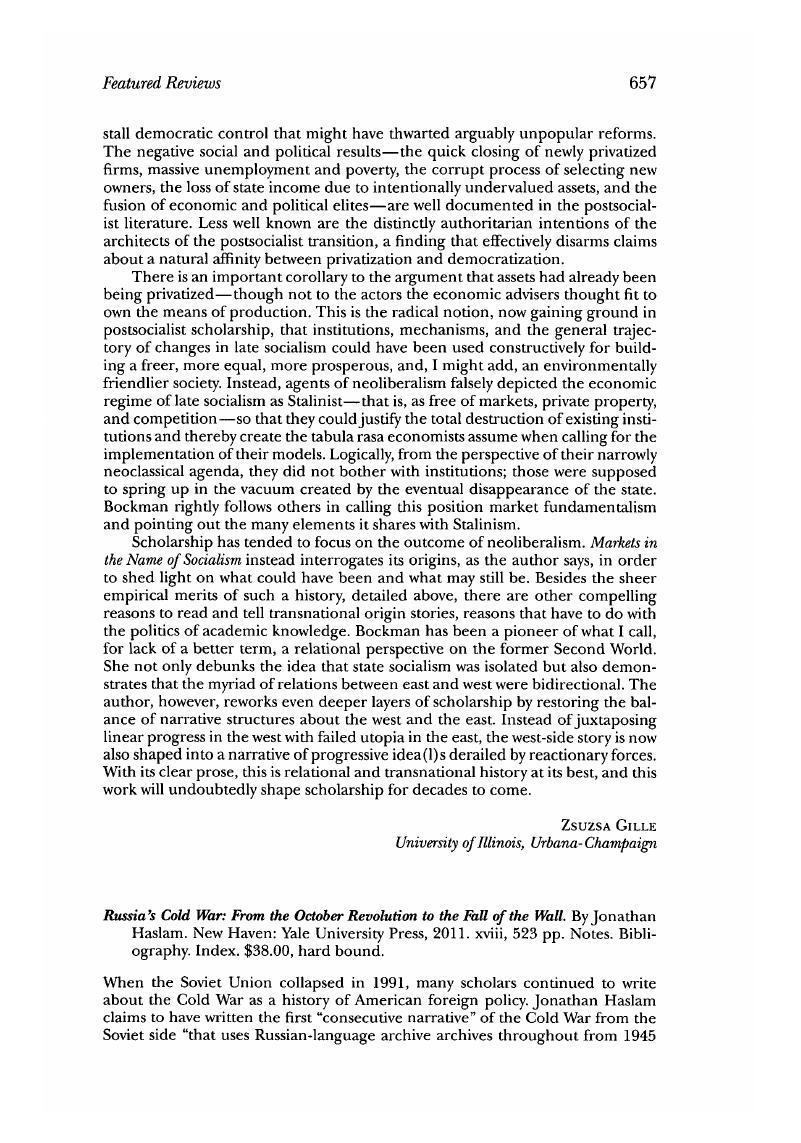No CrossRef data available.
Published online by Cambridge University Press: 20 January 2017

1. Mlechin, Leonid, Iurii Andropov: Posledniaia nadezhda rezhima (Moscow, 2008), 176-77.Google Scholar
2. See Taubman, William, Khrushchev: The Man and His Era (New York, 2003)Google Scholar; Fursenko, Alexander and Naftali, Timothy, “One Hell of a Gamble“: Khrushchev, Castro, and Kennedy, 1958-1964 (New York, 1997).Google Scholar
3. See Harrison, Hope Millard, Driving the Soviets Up the Wall: Soviet-East German Relations, 1953-1961 (Princeton, 2003)Google Scholar; Wilke, Manfred, Der Weg zur Mauer: Stationen der Teilungsgeschichte (Berlin, 2011).Google Scholar
4. See especially the contributions to Melvyn P. Leffler and Odd Arne Westad, eds., The Cambridge History of the Cold War, vols. 1-3 (Cambridge, Eng., 2010); also Gorsuch, Anne E. and Koenker, Diane P., eds., Turizm: The Russian and East European Tourist under Capitalism and Socialism (Ithaca, 2006)Google Scholar; a special issue on consumerism of Russian Studies in History 48, no. 1 (Summer 2009); Roth-Ey, Kristin, Moscow Prime Time: How the Soviet Union Built the Media Empire That Lost the Cultural Cold War (Ithaca, 2011)Google Scholar, as well as Vladislav Zubok, Zhivago's Children: The Last Russian Intelligentsia (Cambridge, Mass., 2009).
5. This is the topic of my forthcoming book about Russian scholar and public intellectual Dmitrii Likhachev (1906-1999). See also Hosking, Geoffrey A., Rulers and Victims: TheRussians in the Soviet Union (Cambridge, Mass., 2006)Google Scholar; Martin, Terry, The Affirmative Action Empire: Nation and Nationalism in the Soviet Union, 1923-1939 (Ithaca, 2001)Google Scholar; Finkel, Stuart, On the Ideological Front: The Russian Intelligentsia and the Making of the Soviet Public Sphere (New Haven, 2007)CrossRefGoogle Scholar; Brandenberger, David, National Bolshevism: Stalinist Mass Culture and the Formation of Modern Russian National Identity, 1931-1956 (Cambridge, Mass., 2002).Google Scholar